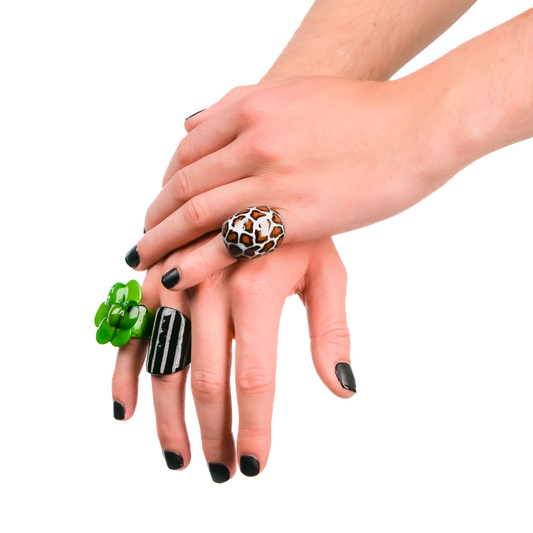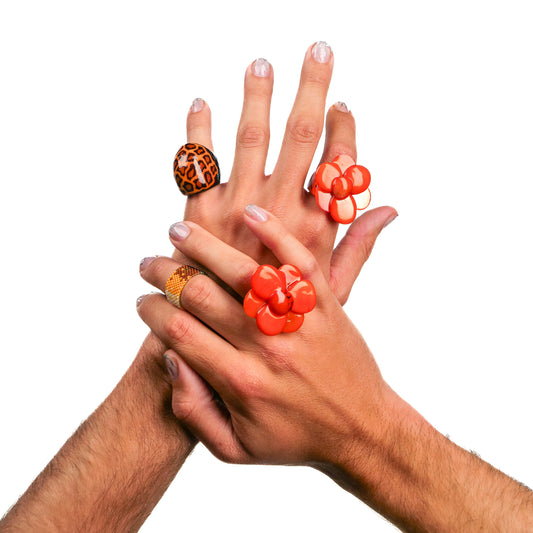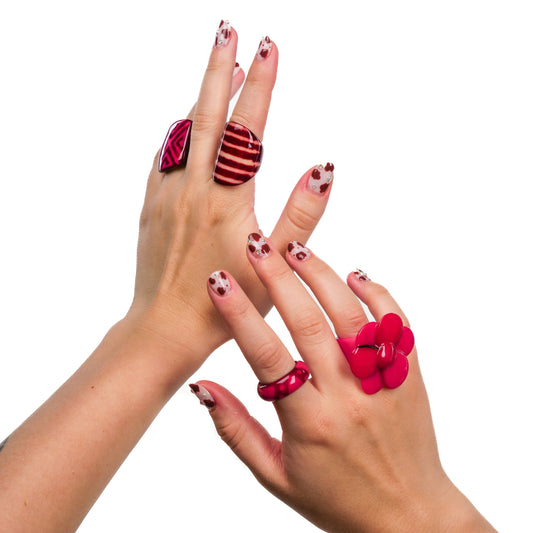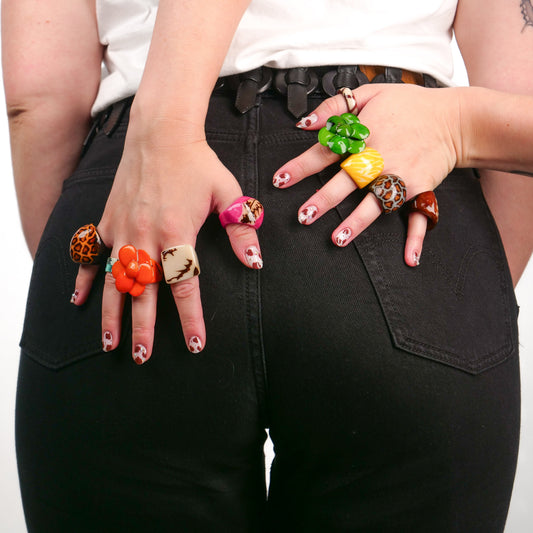
Tagua nut: Vegetable ivory
The tagua nut comes from the ivory palm, native to South America. The name refers to the seeds or nuts, which have the creamy color and hard density of elephant tusks, which is why they are also called "vegetable ivory" in English.

The corozo palm is dioecious, meaning there are male and female corozo palms. The fruit of the female palm contains tagua nuts, which can grow up to 5 cm in size and become rock-hard after drying. Due to these properties, tagua nuts have long been used for chess pieces, knife handles, buttons, and jewelry.

The palm produces up to 22 kg of fruit annually. Beneath a brown covering lies the cream-colored material, which can be used either in its natural state or dyed. It offers a sustainable alternative to real ivory and is another reason to protect the rainforests of South America.
Discover handmade rings made from tagua nut
-
Tagua ring "Leo" in white
Regular price CHF 53.00Regular priceUnit price / per -
Ring Tagua "Flor" in orange
Regular price From CHF 45.00Regular priceUnit price / per -
Ring Tagua "Flor" in pink
Regular price From CHF 45.00Regular priceUnit price / per -
Tagua ring "Leche"
Regular price CHF 53.00Regular priceUnit price / per












